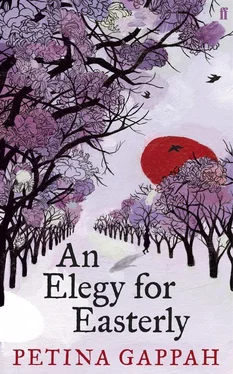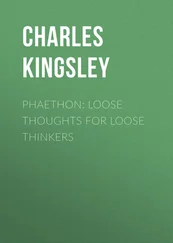Petina Gappah - An Elegy for Easterly
Здесь есть возможность читать онлайн «Petina Gappah - An Elegy for Easterly» весь текст электронной книги совершенно бесплатно (целиком полную версию без сокращений). В некоторых случаях можно слушать аудио, скачать через торрент в формате fb2 и присутствует краткое содержание. Год выпуска: 2009, Издательство: Faber & Faber, Жанр: Современная проза, на английском языке. Описание произведения, (предисловие) а так же отзывы посетителей доступны на портале библиотеки ЛибКат.
- Название:An Elegy for Easterly
- Автор:
- Издательство:Faber & Faber
- Жанр:
- Год:2009
- ISBN:нет данных
- Рейтинг книги:4 / 5. Голосов: 1
-
Избранное:Добавить в избранное
- Отзывы:
-
Ваша оценка:
- 80
- 1
- 2
- 3
- 4
- 5
An Elegy for Easterly: краткое содержание, описание и аннотация
Предлагаем к чтению аннотацию, описание, краткое содержание или предисловие (зависит от того, что написал сам автор книги «An Elegy for Easterly»). Если вы не нашли необходимую информацию о книге — напишите в комментариях, мы постараемся отыскать её.
An Elegy for Easterly — читать онлайн бесплатно полную книгу (весь текст) целиком
Ниже представлен текст книги, разбитый по страницам. Система сохранения места последней прочитанной страницы, позволяет с удобством читать онлайн бесплатно книгу «An Elegy for Easterly», без необходимости каждый раз заново искать на чём Вы остановились. Поставьте закладку, и сможете в любой момент перейти на страницу, на которой закончили чтение.
Интервал:
Закладка:
‘One million for two, five million for six, only half a million.’
‘Nice bananas, nice tomatoes, buy some nice bananas.’
They sang out their wares as they walked the streets.
‘ Mbambaira, muriwo, ma tomato, onion, ma banana, ma orange.’
The men and boys went to Siyaso, the smoke-laced second-hand market where the expectation of profit defied the experience of breaking even. In this section, hubcaps, bolts, nuts, adaptors, spanners. Over there, an entire floor given over to the mysterious bits, spiked and heavy, rusted and box-shaped, that give life to appliances. In the next, sink separators, plugs, cellphone chargers. Under the bridge, cobblers making manyatera sandals out of disused tyres. The shoes were made to measure, ‘Just put your foot here, blaz ,’ the sole of the shoe sketched out and cut out around the foot, a hammering of strips of old tyre onto the sole, and lo, fifteen-minute footwear. In Siyaso, it was not unknown for a man whose car had been relieved of its radio or hubcaps to buy them back from the man into whose hands they had fallen. At a discount.
On the other side of Mbare, among the zhing-zhong products from China, the shiny clothes spelling out cheerful poverty, the glittery tank tops and body tops imported in striped carrier bags from Dubai, among the Gucchii bags and Prader shoes, among the Louise Vilton bags, the boys of Mupedzanhamo competed to get the best customers.
‘Sister, you look so smart. With this on you, you will be smarter still.’
‘Leave my sister be, she was looking this way, this way, sister.’
‘Sister, sister, this way.’
‘This way, sister.’
‘This way.’
‘Sister.’
‘My si .’
They spent the day away from Easterly Farm, in the city, in the markets, in Siyaso. They stood at street corners selling belts with steel buckles, brightly coloured Afro combs studded with mirrors, individual cigarettes smoked over a newspaper read at a street corner, boiled eggs with pinches of salt in brown paper. They passed on whispered rumours about the President’s health.
‘He tumbled off the stairs of a plane in Malaysia.’
‘Yah, that is what happens to people who suffer from foot and mouth, people who talk too much and travel too much.’
At the end of the day, smelling of heat and dust, they packed up their wares and they returned to Easterly Farm, to be greeted again by Martha Mupengo.
‘May I have twenty cents,’ she said, and lifted up her dress.

Josephat’s wife was the first of the adults to recognise Martha’s condition. She and Josephat, when he was home from the mine, lived in the house that had belonged to her aunt. It was five years since Josephat’s wife had married Josephat. She had tasted the sound of her new identity on her tongue and liked it so much that she called herself nothing else. ‘This is Josephat’s wife,’ she said when she spoke into the telephone on the hillock above the Farm. ‘Hello, hello. It’s Josephat’s wife. Josephat’s wife .’
‘It is like she is the first woman in the entire world to be married,’ Mai James said to Mai Toby.
‘ Vatsva vetsambo ,’ said Mai Toby. ‘Give her another couple of years of marriage and she will be smiling on the other side of her face.’
On that day, Josephat’s wife was walking slowly back into Easterly, careful not to dislodge the thick wad of cotton the nurses had placed between her legs. Like air seeping out of the wheels of a bus on the rocky road to Magunje, the joy was seeping out of the marriage. Kusvodza , they called it at the hospital, which put her in mind of kusvedza , slipping, sliding, and that is what was happening, the babies slipped and slid out in a mess of blood and flesh. She had moved to Easterly Farm to protect the unborn, fleeing from Mutoko where Josephat had brought her as a bride. After three miscarriages, she believed the tales of witchcraft that were whispered about Josephat’s aunts on his father’s side.
‘They are eating my children,’ she declared, when Josephat found her at his two-roomed house at Hartley Mine near Chegutu. She stayed only six months. After another miscarriage, she remembered the whispers about the foreman’s wife, and her friend Rebecca who kept the bottle store.
‘They are eating my children,’ she said and moved to her aunt’s house in Mbare. There she remained until the family was evicted and set up home in Easterly Farm. After another miscarriage, she said to her aunt, ‘You are eating my children.’
Her aunt did not take this well. She had, after all, sympathised with Josephat’s wife, even telling her of other people who might be eating her children. In the fight that followed, Josephat’s wife lost a tooth and all the buttons of her dress. Then the younger brother of the aunt’s husband had died. By throwing the dead brother’s widow and her young family out of their house in Chitungwiza, the aunt and her husband acquired a new house, and Josephat’s wife was left in Easterly.
In the evenings, she read from her Bible, her lips moving as she read the promises for the faithful. ‘Is there any among you that is sick? Let him call for the elders of the Church; and let them pray over him, anointing him with oil in the name of the Lord. And the prayer of faith shall save the sick.’
From church to church she flitted, worshipping in township backrooms while drunken revellers roared outside, mosquitoes gorging on her blood in the open fields as she prayed among the white-clad, visiting prophets with shaven heads and hooked staffs who put their hands on her head and on her breasts. At the Sacred Church of the Anointed Lamb, at the Temple of God’s Deliverance, at the Church of Our Saviour of Glad Tidings, she cried out her need in the language of tongues. She chased a child as her fellow penitents chased salvation, chased a path out of penury, chased away the unbearable heaviness of loneliness, sought some kind of redemption. And if the Lord remained deaf, that was because she had not asked hard enough, prayed hard enough, she thought.
She was walking past Mai Toby’s house on the way to her own, when she remembered that Mai Toby had told her about a new church whose congregation prayed in the field near Sherwood Golf Course in Sentosa. ‘You can’t miss them,’ Mai Toby had said. ‘You go along Quendon, until you reach the Tokwe flats. They worship under a tree on which hangs a big square flag; it has a white cross on a red background.’
It means taking three commuter omnibuses , Josephat’s wife thought. First, the omnibus to Mabvuku, then one to town. She would have to walk for fifteen or so minutes from Fourth Street to Leopold Takawira, take an omnibus to Avondale and walk for another forty-five minutes to Sentosa.
I will rise at five , she thought, and catch the mouth of the rooster .
She remembered that she had not been able to reach her husband at the mine to tell him of yet another miscarriage. That thought directed her feet towards Mai James’s house. It was then that she saw Martha. The woman did not need to lift her dress to reveal the full contours of pregnancy. The sight reached that part of Josephat’s wife’s spirit that still remained to be crushed. She ran past Martha, they brushed shoulders, Martha staggered a little, but Josephat’s wife moved on.
‘May I have twenty cents,’ Martha called out after her.

In her dreams, Josephat’s wife turned to follow the sound of a crying child. At Hartley Mine, her husband Josephat eased himself out of the foreman’s wife’s friend Rebecca who kept the bottle store. He turned his mind to the increasing joylessness of his marriage bed. Before, his wife had opened all of herself to him, had taken all of him in, rising, rising, rising to meet him, before falling, falling down with him.
Читать дальшеИнтервал:
Закладка:
Похожие книги на «An Elegy for Easterly»
Представляем Вашему вниманию похожие книги на «An Elegy for Easterly» списком для выбора. Мы отобрали схожую по названию и смыслу литературу в надежде предоставить читателям больше вариантов отыскать новые, интересные, ещё непрочитанные произведения.
Обсуждение, отзывы о книге «An Elegy for Easterly» и просто собственные мнения читателей. Оставьте ваши комментарии, напишите, что Вы думаете о произведении, его смысле или главных героях. Укажите что конкретно понравилось, а что нет, и почему Вы так считаете.












